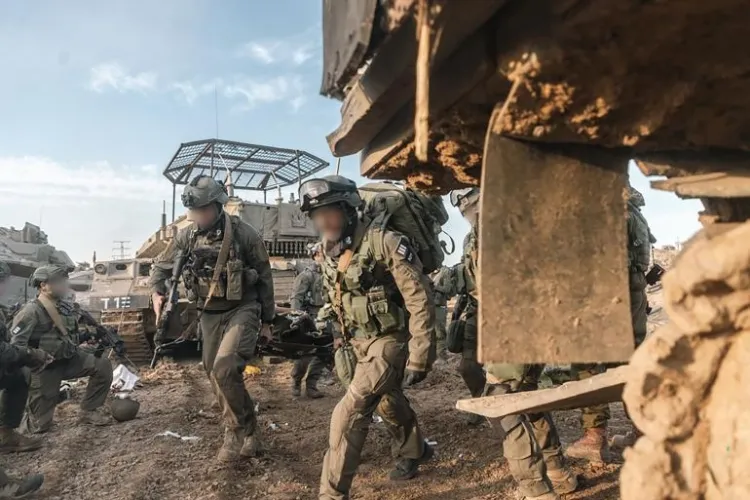Israeli army says 4 soldiers killed in Gaza clashes
The Israeli occupation army announced Tuesday morning that four of its officers and soldiers were killed overnight in the ongoing battles in the Gaza Strip.

The Israeli occupation army announced Tuesday morning that four of its officers and soldiers were killed overnight in the ongoing battles in the Gaza Strip.
The occupation army said in a statement that among the dead are three reserve officers, indicating that they were killed in clashes in the center and south of the Strip, where fighting is concentrated between the resistance and the Israeli forces.
This brings to 186 the reported deaths of Israeli military personnel since the start of the ground operation in Gaza on October 26, and the total number to 514 since Operation Al-Aqsa.
This development comes hours after Israeli sources confirmed - last night - that 9 officers and soldiers were killed and others injured in two operations of Palestinian resistance on Sunday and Monday.
One attack caused a munition to explode in a military truck, killing and wounding soldiers, the sources said, adding that the other attack targeted a building where soldiers were stationed in the southern part of the strip.
The sources added that the announcement of the deaths was the harshest on the army since the beginning of the war.
Prior to the disclosure of these Israeli losses, the Al-Qassam Brigades, the military wing of the Islamic Resistance Movement (Hamas), announced that it had thwarted an Israeli attempt to free prisoners after a special force infiltrated the Al-Bureij camp in the central Gaza Strip.
The Israeli army had announced yesterday that 19 soldiers were wounded in the ongoing battles in the Strip within 24 hours.
Occupation Army spokesman Daniel Hagari said his forces were now focusing their efforts on fighting in central Gaza in the central camps area of Bureij, and in the southern Gaza Strip in the area of Khan Younis.
"The fighting in these areas is complex and will continue throughout the year, Hagari said."
Source: Al-Jazeera











